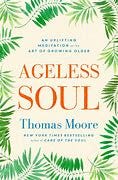In a lovely quiet section of a large American city, a young architecture student was preparing a Zen garden for a new season after a long winter. As he worked, an old monk sat on a bench across the road watching him. The young man raked up the leaves that had covered the ground and spruced up plantings and bushes. He gathered the leaves into a large tarp and tied it up and pulled it far off to the side.
He looked over toward the monk, whom he knew was a well-known teacher of Japanese garden design. The monk stood up.
“A very nice garden,” the monk said.
“Yes,” the student responded. “So you approve?”
“One thing is missing,” the monk said. The student helped the aged monk walk over into the garden. The old man went right up to the tarp, pulled on the rope, and let the leaves pour into the garden and blow in the wind. Then he looked at the newly disheveled space and smiled.
“Beautiful!” he said.
Wabi-Sabi is the Japanese aesthetic in which imperfection, age, brokenness, and a run-down appearance are considered beautiful. This is not strange to the modern eye, which also appreciates furniture that has dents, scratches, and layers of fading paint. A weathered barn isn’t entirely unlike a person who has had a full life, and Wabi-Sabi is a good place to begin discussing the two basic aspects of a human being: the passing of time and ageless mysteries.
We, too, may develop dents and scratches, and we, too, may be beautiful nevertheless. As we go through both the satisfying and the unsettling experiences of our unfolding lives, it helps to keep in mind a simple phrase: “the beauty of imperfection.” Age offers good things and bad things. And so we need to appreciate the value of an imperfect life.
A Zen master might say: “Aging happens.” Our task is to be there for the aging, no matter how it shows itself, rather than fight it. Fighting anything makes it into an enemy and then it looks worse than it is. Keep working against aging, and before long you will have lost the battle.
The secret to aging is to face the loss of youthful beauty and strength, and from there use all the resources we have to be creative, positive, and optimistic. Whenever I use the word optimism, I think of the Roman goddess Ops and the abundance she gives to humankind. She was the sister and wife of Saturn, the very archetype of old age. Abundance herself, Ops is there to make our aging wealthy and pleasurable in the deepest ways.



